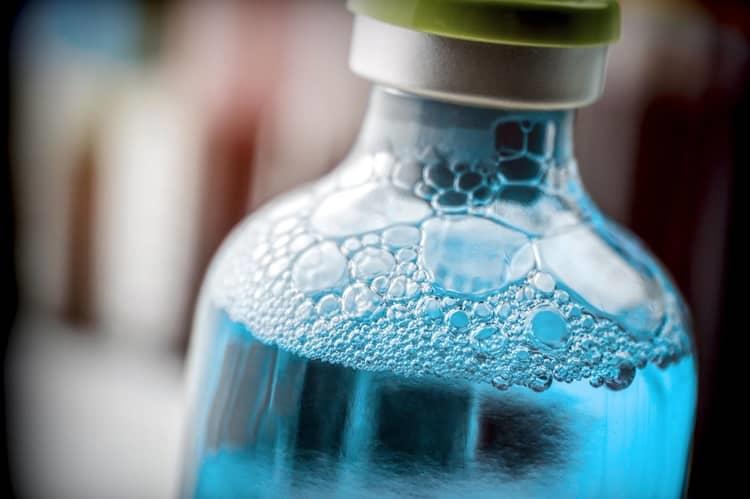
- 29 May 2024
- 1022 Views
Methylene chloride, also known as dichloromethane (DCM), is a volatile, colorless liquid with a mildly sweet odor. It is widely used in various industries, including paint stripping, pharmaceutical manufacturing, and aerosol propellants. Despite its utility, concerns about the health risks associated with methylene chloride exposure have prompted increased scrutiny and regulatory action. This article explores the potential hazards of methylene chloride, its effects on human health, and safety measures to minimize exposure.
What is Methylene Chloride?
Methylene chloride (CH2Cl2) is a chlorinated hydrocarbon. It is a powerful solvent capable of dissolving a wide range of substances, making it valuable in industrial applications. Common uses of methylene chloride include:
Paint Strippers: Used to remove paint, varnish, and coatings.
Degreasing Agents: Employed in metal cleaning and degreasing operations.
Pharmaceuticals: Utilized in the production of antibiotics and other medications.
Aerosol Products: Used as a propellant in aerosol formulations.
Health Risks of Methylene Chloride Exposure
Acute Effects
Acute exposure to methylene chloride can cause immediate health effects. When inhaled or absorbed through the skin, it can lead to:
Respiratory Issues: Irritation of the nose and throat, coughing, and shortness of breath.
Central Nervous System Depression: Symptoms such as dizziness, headaches, nausea, and confusion.
Skin and Eye Irritation: Redness, burning, and discomfort upon contact.
Chronic Effects
Long-term exposure to methylene chloride poses more severe health risks:
Carcinogenicity: The International Agency for Research on Cancer (IARC) classifies methylene chloride as a possible human carcinogen (Group 2B). Chronic exposure has been linked to an increased risk of liver and lung cancer.
Cardiovascular Issues: Prolonged exposure can affect the cardiovascular system, leading to irregular heartbeats and increased risk of heart disease.
Liver and Kidney Damage: Methylene chloride is metabolized into carbon monoxide in the body, which can cause liver and kidney damage over time.
Regulatory and Safety Measures
Given the potential health risks, regulatory agencies have implemented measures to control methylene chloride exposure. The Occupational Safety and Health Administration (OSHA) and the Environmental Protection Agency (EPA) have established guidelines and permissible exposure limits to protect workers and the public.
Workplace Safety
Employers must ensure that workplaces comply with safety regulations, including:
Ventilation Systems: Adequate ventilation to minimize airborne concentrations of methylene chloride.
Personal Protective Equipment (PPE): Providing respirators, gloves, and protective clothing to workers handling methylene chloride.
Training and Monitoring: Regular training for workers on the hazards and safe handling practices, along with monitoring air quality to ensure compliance with exposure limits.
Consumer Safety
For consumers, the EPA has proposed a ban on the use of methylene chloride in consumer paint strippers. This measure aims to reduce the risk of accidental exposure and poisoning.
Safe Handling Practices
To minimize the risks associated with methylene chloride, follow these safe handling practices:
Use in Well-Ventilated Areas: Ensure proper ventilation when using products containing methylene chloride.
Wear Protective Gear: Use appropriate PPE, such as gloves and goggles, to prevent skin and eye contact.
Follow Label Instructions: Adhere to the manufacturer’s instructions and safety warnings on product labels.
Store Safely: Keep methylene chloride products in tightly sealed containers and store them in a cool, dry place away from heat sources.
Conclusion
Methylene chloride is a useful but hazardous chemical. Its potential to harm human health, particularly through chronic exposure, underscores the need for stringent safety measures and regulatory controls. By understanding the risks and adhering to safety guidelines, we can minimize the adverse health effects associated with methylene chloride and protect both workers and consumers.
Buy Methylene chloride
In this regard, Elsapa Alzahbi is one of the well-known suppliers of Methylene chloride that offers high quality products in accordance with international standards and you can check the product price and other info in our Methylene chloride product page. Elsapa Alzahbi products with high diversity in physical and chemical properties meet the different needs of different industries, including the cosmetics industry. Buying from a company like Elsapa Alzahbi can guarantee a safe and secure purchase, with proper support and technical advice available.
